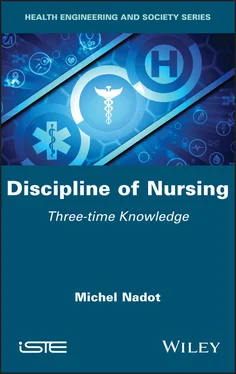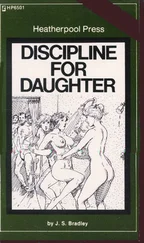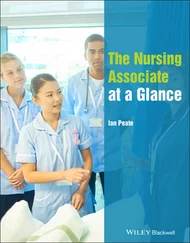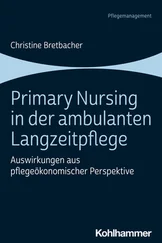Michel Nadot - Discipline of Nursing
Здесь есть возможность читать онлайн «Michel Nadot - Discipline of Nursing» — ознакомительный отрывок электронной книги совершенно бесплатно, а после прочтения отрывка купить полную версию. В некоторых случаях можно слушать аудио, скачать через торрент в формате fb2 и присутствует краткое содержание. Жанр: unrecognised, на английском языке. Описание произведения, (предисловие) а так же отзывы посетителей доступны на портале библиотеки ЛибКат.
- Название:Discipline of Nursing
- Автор:
- Жанр:
- Год:неизвестен
- ISBN:нет данных
- Рейтинг книги:5 / 5. Голосов: 1
-
Избранное:Добавить в избранное
- Отзывы:
-
Ваша оценка:
- 100
- 1
- 2
- 3
- 4
- 5
Discipline of Nursing: краткое содержание, описание и аннотация
Предлагаем к чтению аннотацию, описание, краткое содержание или предисловие (зависит от того, что написал сам автор книги «Discipline of Nursing»). Если вы не нашли необходимую информацию о книге — напишите в комментариях, мы постараемся отыскать её.
Discipline of Nursing — читать онлайн ознакомительный отрывок
Ниже представлен текст книги, разбитый по страницам. Система сохранения места последней прочитанной страницы, позволяет с удобством читать онлайн бесплатно книгу «Discipline of Nursing», без необходимости каждый раз заново искать на чём Вы остановились. Поставьте закладку, и сможете в любой момент перейти на страницу, на которой закончили чтение.
Интервал:
Закладка:
History also avoids the alienation of future generations and avoids the production of “efficient consumer workers and beings without memory, without identity, without roots” [BUG 04]. History participates in the construction of professional identity. But since we have been talking about it, what can it be used for? As Rocher points out, “professional identity is this essential condition for the maturity of the personality, it allows the harmonious social functioning of a person in his environment, as well as the cohesion of groups” [ROC 68]. It is nevertheless preferable for the harmonious social functioning of interdisciplinary work 4 , for example, to know the origins, contents and logic of action of the discipline we represent!
“The teaching of history also gives, whether premeditated or not, nourishment to what is and will be the work of the memory of those who follow us” [MON 93]. The function of memory represented by the saying to know where we are going, is to know (and accept) where we come from “is not to celebrate the office of the past, but to help us imagine the future” [MON 93]. It is therefore incumbent on nursing educators to update the collective memory of their own discipline. It is also the role of universities, particularly nursing faculties, to promote basic nursing research. While it is interesting to discover what the language traditions of caring are made of ethnographically, we must also accept a past that was not necessarily glorious or spectacular in the secular era or in the Ancien Régime according to the representations in use.
Initial nursing training today is increasingly being given in academic settings, particularly in English-speaking countries. This is why the term “discipline” appears. In the French-speaking community, there are also nursing faculties (Canada, Lebanon) and high schools (Switzerland, Belgium). As SIDIIEF ( Secrétariat international des infirmières et infirmiers de l’espace francophone ) stated in 2011: “The pursuit of graduate studies in nursing is fundamental to ensure the training of competent teachers capable of guaranteeing quality initial training as well as the training of clinical nurse specialists and the training of researchers. The development of nursing research remains an essential condition for the renewal of care practices and the evolution of knowledge” [SID 11]. But how can nursing faculty researchers produce new knowledge to develop their discipline if they ignore the language traditions inherited from the past and the ancient knowledge on which it is based?
NOTE.– Nursing researchers rarely refer to their language traditions, which, according to the philosophy, “represent the most important source of knowledge, both qualitative and quantitative” [POP 85]. New knowledge is often knowledge that modifies or enriches previous knowledge.
While language traditions thus play a primordial role in the constitution of knowledge, it is normal that this tradition be rediscovered (history of knowledge), maintained and updated to serve as a basis for subsequent knowledge produced by scientific research. These language traditions, whose importance Popper emphasized, are precisely those statements and those units of discourse that allow specific phenomena related to the action of caregiving in the field of discourse to emerge in the long term. These traditions, which, as we have seen [NAD 12a], are passed on by caregivers from generation to generation, are also mainly units that should be considered:
By what right they can claim a domain that specifies them in space and a continuity that individualizes them in time; according to what laws they are formed; on the basis of what discursive events they are divided; and if finally they are not, in their accepted and quasi-institutional indivisibility of duality, the surface effect of more consistent units. [FOU 69]
It is from this questioning that the history of the discipline known as “nursing” can access its statements. It is in fact a matter of finding the original statements:
How far and how often they are repeated, through what channels they are disseminated, in what groups they circulate; what general horizon they draw for men’s thinking, what limits they impose on it; and how, in characterizing an epoch, they make it possible to distinguish it from others. [FOU 69]
Certainly, historical research for the nursing discipline has little influence on day-to-day nursing practice, as noted above. However, it remains a necessity if only to teach students about the history of their own discipline. This has long been a seemingly normal procedure at university where, depending on the discipline taught, we can find the history of psychology, the history of medicine, the history of sociology or the history of education sciences, to name but a few. This logic is much less obvious within the nursing discipline where history when taught (!) often takes on hybrid, redundant, stereotyped, laudatory and even hagiographic aspects. But why should we be surprised? Moreover, what place do history courses have in the training programs? On a purely informative basis and without claiming to draw any comparison whatsoever, we find that between 1980 and 2009, for example, “the history of nursing” represented between 6 and 16 hours of teaching in the nursing course at the Fribourg University of Health (Switzerland). It also represented about 24 hours of teaching (foundations of the nursing discipline) and 4 credits in the master’s degree program in nursing research in 2016 at the Faculty of Nursing of the Saint-Joseph University in Beirut (Lebanon). It is also 15 hours of “history of the profession” courses that were registered in the curriculum of the schools of nursing run by Quebec hospitals in 1960 [COH 00] and between 2 hours (!) and 8 hours of “history courses” for five French nursing institutes (IFSI) in 2009 [HOM 12]. In contrast, we do not find the word “history” in the 1996 Bachelor of Science in Nursing program of the Faculty of Nursing at the Université de Montréal. It is assumed here that the course title “Introduction to the Discipline of Nursing” plays this role [COH 02].
In the history of the nursing profession, we know Florence Nightingale, but we often ignore the name of the woman who inspired Florence Nightingale to found a nursing school in Great Britain. It is around a religious problem resulting from a conflict of values between Valérie de Gasparin-Boissier and Florence Nightingale that training began in Europe. Why does one of these women take center stage and not the other? And of course, the history of the nursing discipline has nothing to do with the history of medicine or religion. There is often a tendency, not only in the media, for example, but also within the profession, to confuse disciplines and the places where knowledge is produced.
Why always position oneself as an “auxiliary profession” or present oneself as “para something”? Legislation on the profession does not explain everything. Just because women care workers from the servant and working classes were unable to access education in the 18th Century does not mean that the specificity and complexity of their task should be ignored today, especially if we interpret it from a biomedical paradigm that only very partially reflects actual practice.
Caring in ancient societies and in popular circles also means taking into account the environmental conditions and those of the habitat or domestic uses of the time. But, as Ehrenreich and English point out in connection with the witch hunt (empirical healers at the service of the peasant population), “domestic work is much more than cleaning the house. It is about physically, emotionally, sexually serving those who bring in the wages, keeping them ready for work day in and day out”. In the devaluation of women’s social role, “witch hunts have served the sexual division of labor and the control of men over women, their bodies and their labor” [EHR 15]. To understand also how care was instituted in pre-industrial society, it must be kept in mind that most secular healthcare professionals in institutional settings at the end of the 18th Century came from rural or domestic settings and school was not yet compulsory. There has to be a start to everything!
Читать дальшеИнтервал:
Закладка:
Похожие книги на «Discipline of Nursing»
Представляем Вашему вниманию похожие книги на «Discipline of Nursing» списком для выбора. Мы отобрали схожую по названию и смыслу литературу в надежде предоставить читателям больше вариантов отыскать новые, интересные, ещё непрочитанные произведения.
Обсуждение, отзывы о книге «Discipline of Nursing» и просто собственные мнения читателей. Оставьте ваши комментарии, напишите, что Вы думаете о произведении, его смысле или главных героях. Укажите что конкретно понравилось, а что нет, и почему Вы так считаете.












